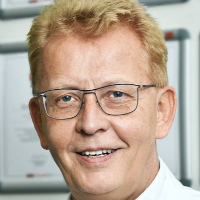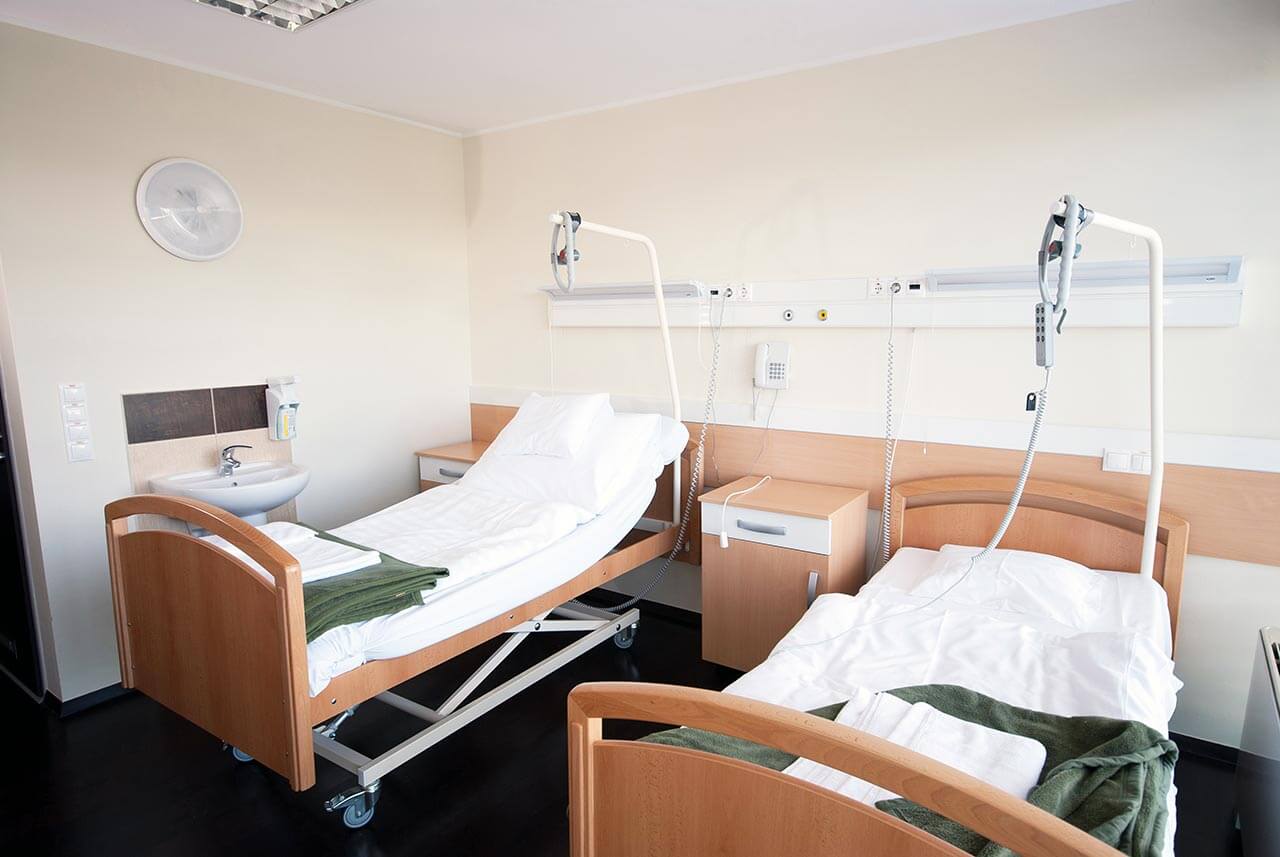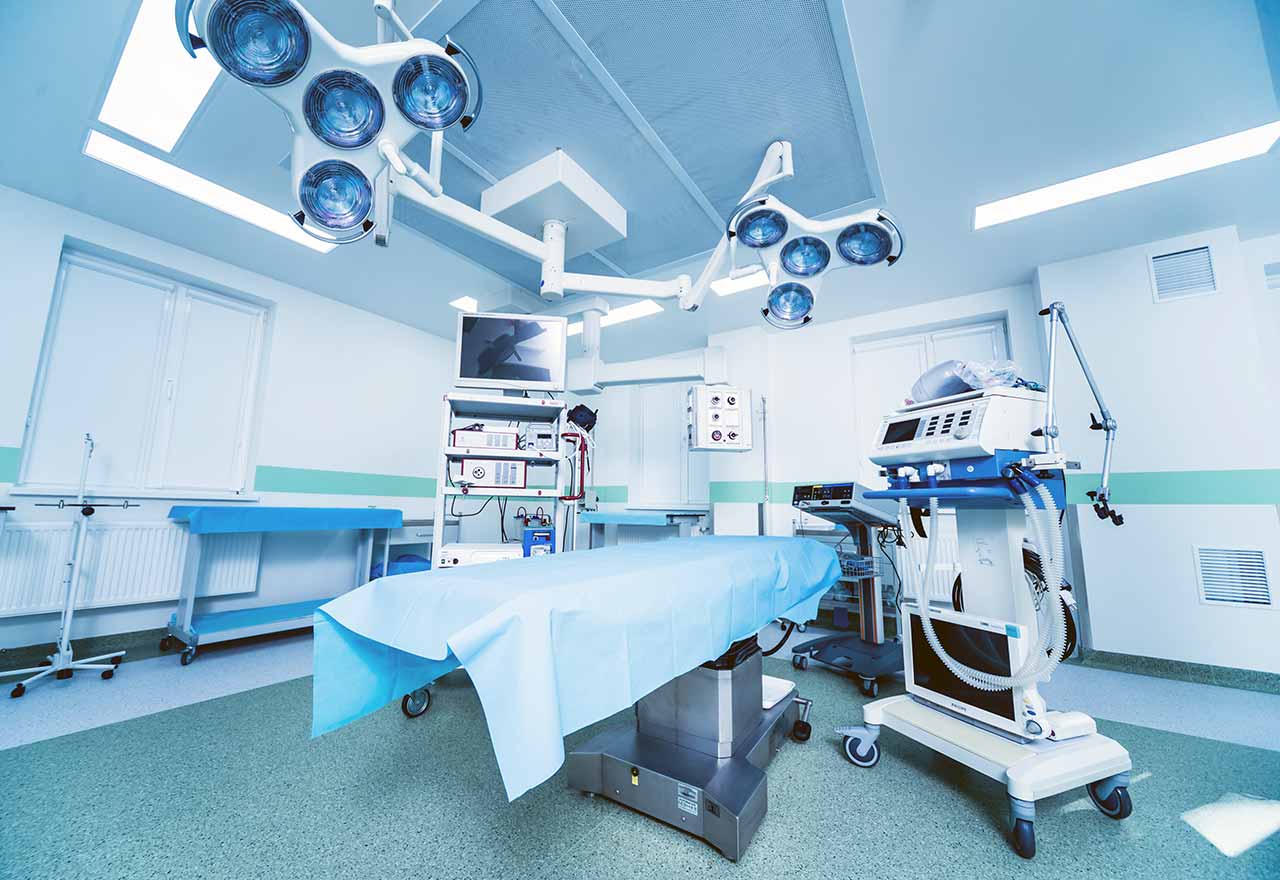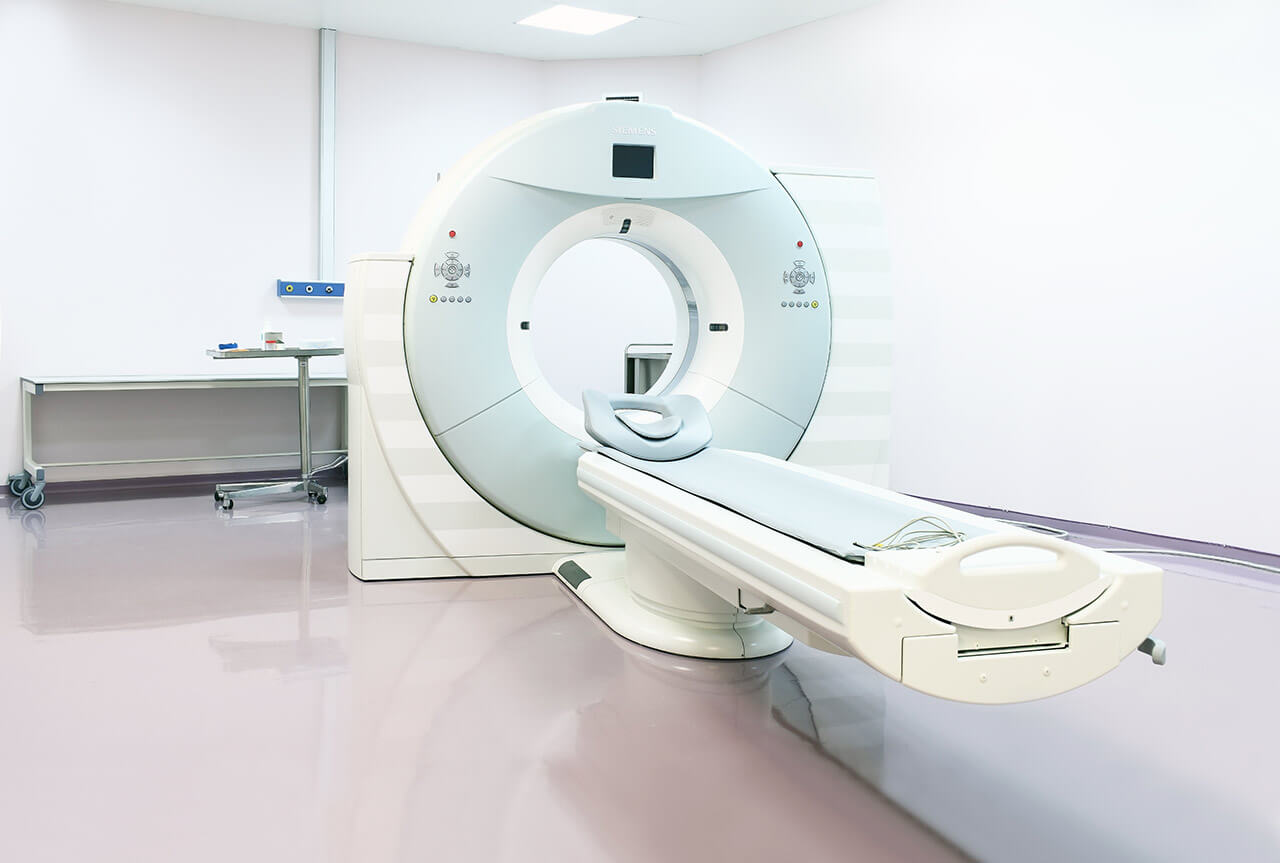
The program includes:
- Initial presentation in the clinic
- clinical history taking
- review of medical records
- physical examination
- laboratory tests:
- complete blood count
- biochemical analysis of blood
- inflammation indicators (CRP, ESR)
- indicators blood coagulation
- TSH-basal
- blood gas analysis
- chest x-ray examination
- bronchography
- pulmonary function test
- bronchoscopy with biopsy
- histological and microbiological examination
- measurement of arterial blood pressure
- electrocardiogram (ECG)
- echocardiography (ECHO)
- high-resolution computed tomography (HR-CT)
- consultation of related specialists
- symptomatic specific treatment
- the cost of essential medicines and materials
- nursing services
- control examinations
- full hospital accommodation
- developing of further guidance
Required documents
- Medical records
- X-ray examination, MRI/CT scan (if available)
Service
You may also book:
 BookingHealth Price from:
BookingHealth Price from:
About the department
The Department of Pulmonology at the HELIOS University Hospital Wuppertal offers the full range of medical services in the areas of its competence and specializes in the treatment of respiratory diseases. Particular attention is paid to the diagnostics and treatment of pneumonia, tuberculosis, sarcoidosis, pulmonary fibrosis, pleurisy, occupational lung diseases, chronic obstructive pulmonary disease. The department is part of the Lung Cancer Center certified by the German Cancer Society (DKG), and therefore pulmonologists actively cooperate with thoracic surgeons, oncologists, radiologists, radiation therapists and other specialists. In addition, the department's doctors specialize in the treatment of allergic diseases, including bronchial asthma. The department is one of the few German medical facilities dealing with the treatment of patients with diseases caused by asbestos exposure. The department employs a highly professional team of doctors, for whom the health of patients and their needs are always in the first place. The medical facility uses thoroughly elaborated pharmacotherapy regimens, and in complex cases, artificial ventilation is carried out in specially equipped patient rooms. Patients receive medical care on both an inpatient and outpatient basis.
The department is headed by Prof. Dr. med. Kurt Rasche. The specialist has vast clinical experience acquired during his successful professional career in leading German hospitals. According to the prestigious Focus magazine, Prof. Rasche ranks among the top German doctors specializing in the treatment of pulmonary emphysema and chronic obstructive pulmonary disease.
The team of the department's pulmonologists most often admit patients with general respiratory diseases: pneumonia, tuberculosis, pulmonary fibrosis, sarcoidosis and pleurisy. As a rule, these diseases respond well to pharmacotherapy. Each patient and his clinical case is unique, and therefore the specialists of the medical facility carry out a thorough preliminary examination in order to accurately assess the stage of the pathology and prescribe the optimal complex of medicines. Patients who smoke should quit smoking. The treatment regimen quite often includes inhalation therapy, therapeutic exercises, and physiotherapy.
An important place in the department's clinical practice is given to the therapy of chronic obstructive pulmonary disease (COPD) and bronchial asthma. Both diseases are quite serious and can be fatal without timely treatment. There are no methods of complete cure for COPD and bronchial asthma in modern medicine, so the task of the department's pulmonologists is to select the most effective drug therapy regimen that will alleviate symptoms and prevent the progression of the pathology. To achieve a good therapy result, the department's specialists strongly recommend the patients to quit smoking, including passive smoking, lead a healthy lifestyle and install an air purification system in the house. In some cases, therapeutic exercises and massage are additionally prescribed.
The department admits patients with lung cancer, which requires a highly professional approach to diagnostics and treatment. Cancer treatment is provided in a highly specialized center, where pulmonologists, thoracic surgeons, oncologists and radiation therapists work together. Prior to the treatment, the department's specialists carry out the full diagnostic examination, including endoscopic ultrasound scans, computed tomography (CT), magnetic resonance imaging (MRI), positron emission tomography (PET-CT) and laboratory tests. The treatment regimen is cooperatively developed by doctors from related fields at the tumor boards. The key treatment methods for lung cancer are surgical resection of a malignant tumor or part of the affected organ, chemotherapy, radiation therapy, chemoradiation therapy, as well as targeted therapy, immunotherapy, and various combinations of these therapies. A particular therapeutic regimen is developed taking into account the patient's specific clinical indicators: the stage of the oncological process, the histological type of tumor, the presence of concomitant diseases, functions of vital organs. The most effective method of fighting lung cancer is total removal of the malignant tumor performed by thoracic surgeons. Doctors prefer modern thoracoscopic techniques (surgical access through small punctures and skin incisions), but classical open surgery can also be performed, if required. After completing the course of treatment, patients undergo a course of rehabilitation, and then remain under constant medical supervision to prevent the development of cancer recurrence.
The department's range of medical services includes:
- Diagnostics and treatment of general pulmonary diseases
- Pneumonia
- Tuberculosis
- Sarcoidosis
- Pulmonary fibrosis
- Pleurisy
- Occupational lung diseases
- Chronic obstructive pulmonary disease (COPD) and bronchial asthma
- Diseases caused by exposure to asbestos
- Sleep-related breathing disorders
- Diagnostics and treatment of respiratory cancers
- Lung cancer (treatment is provided in a specialized center with the participation of doctors from related medical specialties)
- Diagnostics and treatment of other pathologies
The department's therapeutic options include:
- Pharmacotherapy
- Intensive care
- Artificial ventilation, including weaning from mechanical ventilation
- Auxiliary treatments: inhalation therapy, therapeutic exercises, physiotherapy
- Lung cancer treatment (in collaboration with thoracic surgeons, oncologists, radiation therapists and other specialists)
- Surgical intervention
- Radiation therapy
- Chemotherapy
- Chemoradiation therapy
- Targeted therapy
- Immunotherapy
- Other therapeutic methods
Curriculum vitae
Higher Education
- 1984 Admission to medical practice.
- 1978 - 1984 Study of Human Medicine, Westphalian Wilhelm University of Muenster, Muenster.
Professional Career
- 2018 Head of the Working Group on Pulmonology and Thoracic Surgery of the Helios Hospital Group.
- 2018 Head of the Lung Cancer Center certified by the German Cancer Society (DKG).
- 2012 - 2018 Deputy Medical Director of the HELIOS University Hospital Wuppertal.
- 2011 - 2017 Deputy Chairman of the Board of Directors, Clinical Ethics Committee, HELIOS University Hospital Wuppertal.
- Since 2010 Head Physician of the Department of Pulmonology at the HELIOS University Hospital Wuppertal.
- 2001 - 2009 Head Physician of the Center for Internal Medicine (specialization in Pulmonology), St. Anthony Hospital Wuppertal (Academic Hospital of the University of Duesseldorf).
- 1997 - 2001 Managing Senior Physician, Department of Pulmonology, Allergology and Somnology, Hospital Bergmannsheil at the Ruhr University Bochum.
- 1992 - 1997 Senior Physician, Department of Pulmonology, Allergology and Somnology, Hospital Bergmannsheil at the Ruhr University Bochum.
- 1986 - 1992 Assistant Physician and Research Fellow, Department of Pulmonology, Allergology and Somnology, Hospital Bergmannsheil at the Ruhr University Bochum.
- 1984 - 1986 Captain of the Bundeswehr Medical Service.
Board Certification and Qualifications
- 2006 Advanced training in Somnology.
- 2004 Certified Infectologist (certified by the German Society of Infectious Diseases, DGI).
- 1997 Qualified Specialist in Somnology (certified by the German Sleep Society, DGSM).
- 1996 Additional qualification in Special Intensive Care.
- 1993 Additional qualification in Allergology.
- 1993 Specialization in Pulmonology.
- 1991 Board certification in Internal Medicine.
- 1988 Qualification in Emergency Medical Care.
Research Career
- 2014 Professor of Pulmonology, Witten-Herdecke University.
- 2004 Extraordinary Professor of Internal Medicine, University of Duesseldorf.
- 2002 Extraordinary Professor of Internal Medicine, Ruhr University Bochum.
- 1996 Habilitation in Internal Medicine, Ruhr University Bochum.
- 1985 Graduation thesis defense, Westphalian Wilhelms University of Muenster.
Publications
- Author of over 180 publications.
- Author of 20 chapters in books.
Clinical Interests
- Bronchial asthma.
- Sleep-related breathing disorders.
- Malignant lung diseases.
- Occupational lung diseases.
- Interstitial lung diseases, including sarcoidosis.
Memberships in Professional Societies
- German Professional Association of Physicians.
- Professional Association of German Pulmonologists, Board Member, North Rhine-Westphalia.
- German Society of Internal Medicine.
- German Society of Pulmonology.
- German Society for Lung and Respiratory Research.
- West German Respiratory Society.
- German Interdisciplinary Society of Home Mechanical Ventilation (DIGAB).
- German Society for Sleep Research and Sleep Medicine.
- Society for Sleep Medicine of North Rhine-Westphalia.
- German Cancer Society.
- German Society of Dental Sleep Medicine (DGZS).
- German-Turkish Medical Society.
- European Respiratory Society.
- European Sleep Research Society.
- American Thoracic Society.
Photo of the doctor: (c) Helios Universitätsklinikum Wuppertal
About hospital
According to the prestigious Focus magazine, the HELIOS University Hospital Wuppertal ranks among the top medical facilities in Germany!
The hospital rightfully enjoys the status of the maximum care medical facility and provides its high-quality services in all modern fields of medicine. The hospital operates on the basis of the Witten/Herdecke University, which was opened in 1982 and today is considered one of the best in Germany. Thus, many head physicians of the medical complex are in charge of the corresponding department at the university, which contributes to the close intertwining of research activities and clinical practice. The hospital has long traditions and its own values – the main goal of doctors is to provide comprehensive medical care focused not only on curing the disease, but also on the patient's personal needs.
The hospital has 1,000 beds. The doctors of the medical facility admit more than 50,000 inpatients annually. In addition, more than 100,000 outpatients undergo diagnostic and therapeutic procedures. Such high attendance rates speak for themselves and are undeniable proof of the high-quality medical service of the European level. The medical staff of the hospital has more than 2,500 employees, whose main task is to restore the patient's health and provide him with a decent quality of life.
The hospital has more than 26 specialized departments, as well as many narrowly focused centers and institutes dealing with the treatment of patients suffering from a particular group of diseases: Breast Center, Cancer Center, Cardiology Center, Trauma Center, Spine Center and others. The primary clinical focus of the medical center is cancer treatment.
For more than 25 years, the hospital has been running a special quality management system for medical care, which regulates the aspects of work of the medical staff, compliance with hygiene and safety standards during diagnostics and treatment. Consequently, patients can be sure that their health is in the safe hands of true professionals who work in accordance with the latest medical standards.
Special attention should be paid to the honors of the hospital for excellent patient care. The medical complex has quality certificates from the German Cancer Society (DKG), the German Trauma Society (DGU), the German Cardiac Society (DGK), the German Stroke Society (DSG) and other professional German societies.
Photo: (с) depositphotos
Accommodation in hospital
Patients rooms
The patients of the HELIOS University Hospital Wuppertal live in comfortable single, double, triple and quadruple rooms. Each patient room has an ensuite bathroom with shower and toilet. The standard room furnishings include a comfortable automatically adjustable bed, a bedside table, a wardrobe, a TV and a telephone. The hospital has Wi-Fi (free). For maximum patient comfort, there is a nurse call device on the bedside table. This device allows the patient to control the TV, radio, turn on or off the lights, and adjust the position of the bed.
The patients of the hospital are also offered accommodation in enhanced-comfort rooms. These rooms additionally provide a safe and a free minibar with soft drinks. The enhanced-comfort rooms also have a spacious bathroom with hairdryer, bathrobe, towels and toiletries.
Meals and Menus
The patients of the hospital are offered three meals a day: breakfast, lunch and dinner. The menu offers a variety of delicious dishes to suit all tastes, including dietary and vegetarian options.
The hospital also has a bistro where one can taste delicious hot dishes, cold snacks, desserts, as well as a cup of tea, coffee or refreshments.
The patients staying in enhanced-comfort rooms are offered a separate menu that includes a wider and more refined range of dishes. In addition, fresh fruit, tea, coffee and desserts are delivered to the patient room every day, if desired.
Further details
Standard rooms include:
Religion
The religious services are available upon request.
Accompanying person
During an inpatient program, your accompanying person can stay with you in the patient room or in the hotel of your choice.
Hotel
During an outpatient program, you can stay in the hotel of your choice. Our managers will help you choose the most suitable options.




